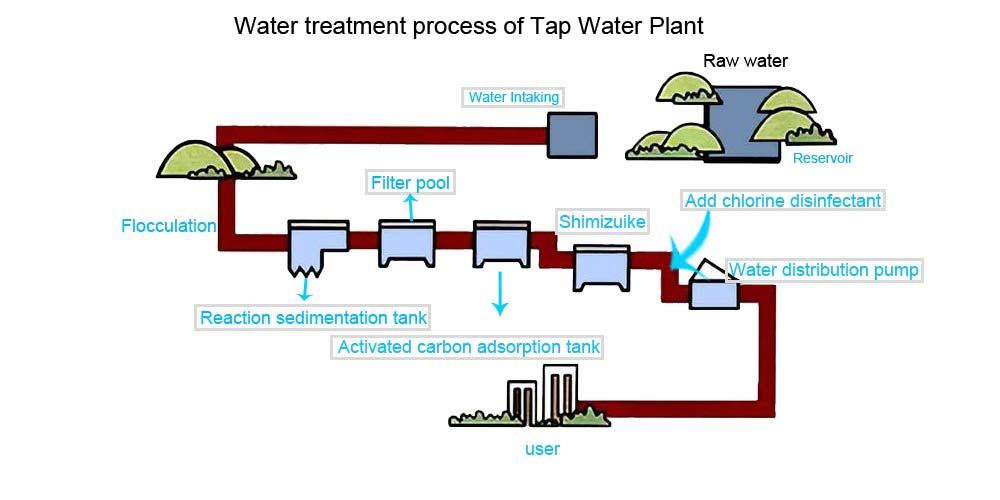During a trip, I chose to stay in a hotel near the train station. But when I turned on the tap, I smelled chlorine. I was curious, so I learned a lot about tap water treatment. You may have encountered the same problem as me, so let me answer it for you.
First of all, we need to understand what tap water goes through before it flows into the terminal network.
In daily life, especially in cities, tap water comes from water plants. The raw water obtained needs to undergo a series of treatments in the water plant to meet the standards of drinking water. As the first stop to provide us with safe drinking water, the water plant needs to remove various suspended matter, colloids, and dissolved matter in the raw water through a certain water treatment process to ensure the needs of daily drinking and industrial production. The conventional treatment process includes flocculation (commonly used flocculants are polyaluminum chloride, aluminum sulfate, ferric chloride, etc.), precipitation, filtration and disinfection.
The disinfection process is the source of chlorine smell. At present, the commonly used disinfection methods in water plants are chlorine disinfection, chlorine dioxide disinfection, ultraviolet disinfection or ozone disinfection.
Ultraviolet or ozone disinfection is often used for bottled water, which is directly packaged after disinfection. However, it is not suitable for pipeline transportation.
Chlorine disinfection is a common method for tap water disinfection at home and abroad. The chlorine disinfectants commonly used in water treatment plants are chlorine gas, chloramine, sodium dichloroisocyanurate or trichloroisocyanuric acid. In order to maintain the disinfection effect of tap water, China generally requires the total chlorine residue in the terminal water to be 0.05-3mg/L. The US standard is about 0.2-4mg/L depends which state you live in. In order to ensure that the terminal water can also have a certain disinfection effect, the chlorine content in the water will be maintained at the maximum value of the specified range (2mg/L in China, 4mg/L in the United States) when the tap water leaves the factory.
So when you are closer to the water plant, you may smell a stronger chlorine smell in the water than at the terminal end. This also means that there may be a tap water treatment plant near the hotel where I used to stay (it has been verified that the straight-line distance between the hotel and the water supply company is 2km only).
Since tap water contains chlorine, which may make you smell or even taste unpleasant, you can boil the water, let it cool, and then drink it. Boiling is a good way to remove chlorine from water.
Post time: Aug-23-2024

